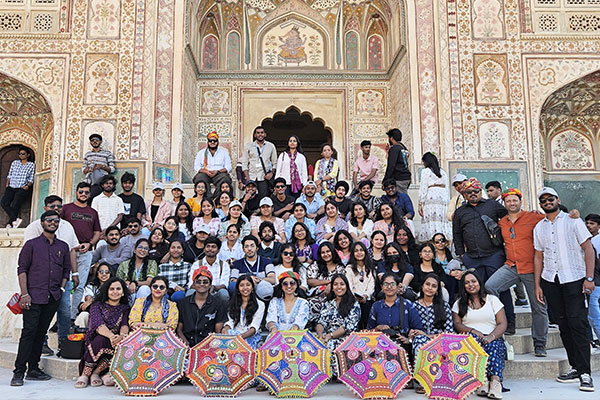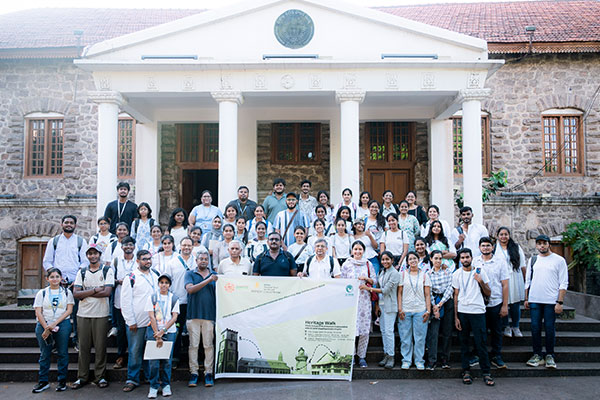The ‘One Programme Two Cities’ model provides students with a unique academic journey
that bridges Hyderabad and Visakhapatnam—two culturally rich and architecturally
diverse urban centres. This innovative framework allows students to engage with
distinct regional contexts, expanding their understanding of architecture beyond
a single setting.
By experiencing varied design philosophies, studio cultures, and urban environments,
students cultivate a flexible and responsive design mindset.
This cross-city exposure fosters adaptability, collaborative learning, and a global
perspective grounded in local relevance.
With access to expert faculty, advanced infrastructure, and strong industry
connections in both campuses, students benefit from
a holistic education that prepares them to lead in a fast-evolving architectural
landscape.
Connect / Outreach
The Connect & Outreach initiative is a cornerstone of the B.Arch program at GITAM,
designed to bridge academic learning with professional engagement and community
involvement.
It offers students structured opportunities to interact with practicing
architects, urban designers, planners, and industry leaders through guest lectures,
seminars,
workshops, and alumni talks.
These interactions expose students to contemporary practices, global trends, and
ethical responsibilities in architecture. The program also encourages active
participation in site visits, real-world projects, and collaborative case studies,
allowing students to apply their learning in practical contexts.
Beyond the profession, students engage in community-driven design, sustainability
efforts, and public-space interventions—nurturing a strong sense of civic
responsibility and environmental consciousness. A robust alumni network provides
additional mentorship and career guidance, creating a support system that extends
well beyond graduation.
Through this dynamic platform, students evolve into socially aware, industry-ready
professionals prepared to make meaningful contributions to society.





